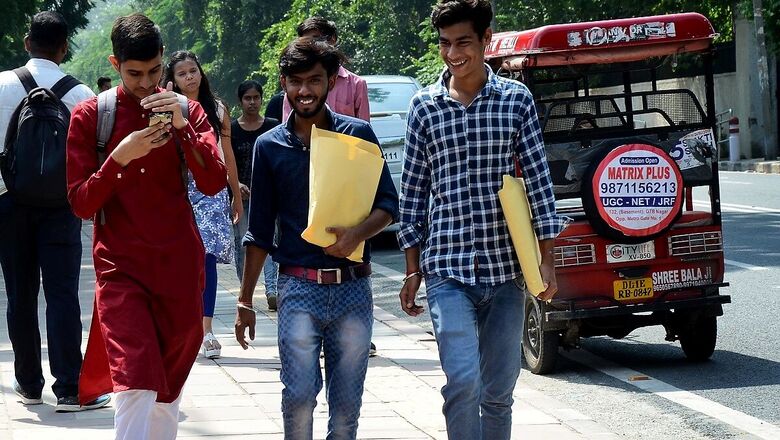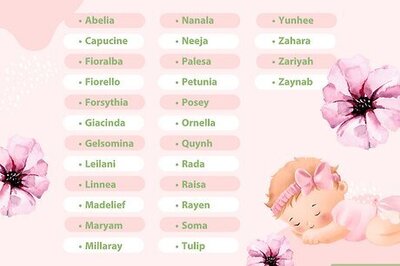
views
All India Council for Technology Education (AICTE) has allowed colleges to offer engineering degrees in regional languages. In the first phase, courses will be offered in as many as five languages — Hindi, Marathi, Tamil, Telugu, and Bengali — from the new academic year (2020-21). The AICTE is translating courses and creating online and offline content in 11 different languages.
Offering courses in the Indian languages is one of the suggestions under the National Education Policy (NEP) which states that no student should be discriminated against in higher education institutes due to their language preference. The AICTE, however, also suggests that engineering students had shown an interest in studying in their mother tongues.
AICTE had earlier this year conducted a survey of undergraduate engineering students in which nearly half (43.79%) of students said they want to study in regional languages. The survey was conducted with a total of 83,195 students from across the country. Most of the students, according to the AICTE survey, wanted to learn Tamil, Hindi, and Telugu – 12,487, 7,818, and 3,991, students.
After the survey, a committee was constituted to examine the feasibility of imparting technical education in the mother tongue. Headed by Prof. Prem Vrat, the committee recommended that options should be made available to students to study engineering courses in regional languages in NITs/ IITs and AICTE approved institutions.
While the IITs have not yet agreed upon delivering courses in regional languages citing several reasons including lack of availability of quality faculty amongst others, a total of 14 colleges across nine states have expressed interest in offering engineering programmes in regional languages. This includes B. Tech Computer Science, IT, mechanical, civil, electrical, and electronics, informed AICTE.
To ensure quality education, the AICTE will conduct faculty development programmes (FDPs) for the institutes willing to offer multilingual engineering education.
English still a must
For students who will be studying in regional languages, English will be a mandatory subject.
“Students shall have to take a mandatory English course in all four years so that they are able to acquire necessary skills in the English language and are capable of getting employment in any part of the world,” said AICTE in response to queries posed by News18.com.
The AICTE also warned that commonly used scientific and technical terms will not be translated in regional languages in order to maintain uniformity. “They shall continue to be used as is used in the scientific literature for easy mobility of students later.”
Whether or not a college wants to offer multilingual degrees, English-only or regional language programmes will be a choice of the college based on the choice of students and availability of faculty.
To be eligible to offer a course in regional languages, the college will have to have a valid NBA accreditation in the programme. This is set as a prerequisite to “ensure that good quality institutes and programmes alone are made available to regional language courses,” according to the rules.
Demand for Regional Language increases with Seniority
“Students are more enthusiastic to have their engineering education in English, however, as they progress further they found themselves to be uncomfortable to learn with the English language, hence the response goes on increasing favouring to the education in the mother tongue.”
According to the survey, more male students expressed interest in studying in their regional language (74.33%), as compared to women. Only 25.67% of the female respondents wanted to learn in their native language.
Among those who had studied their Class 10 and 12 in regional language, 49.88% of students wanted to pursue higher education in regional language.
In 2020, the Joint Admission Board (JAB) had decided to hold JEE Main — the engineering entrance exam in regional languages too. The exam, which was held in English, Hindi, and Urdu, is now conducted in 13 languages, including Assamese, Bengali, Gujarati, Hindi, Kannada, Marathi, Malayalam, Odia, Punjabi, Tamil, and Telugu.
Read all the Latest News, Breaking News and Coronavirus News here.




















Comments
0 comment